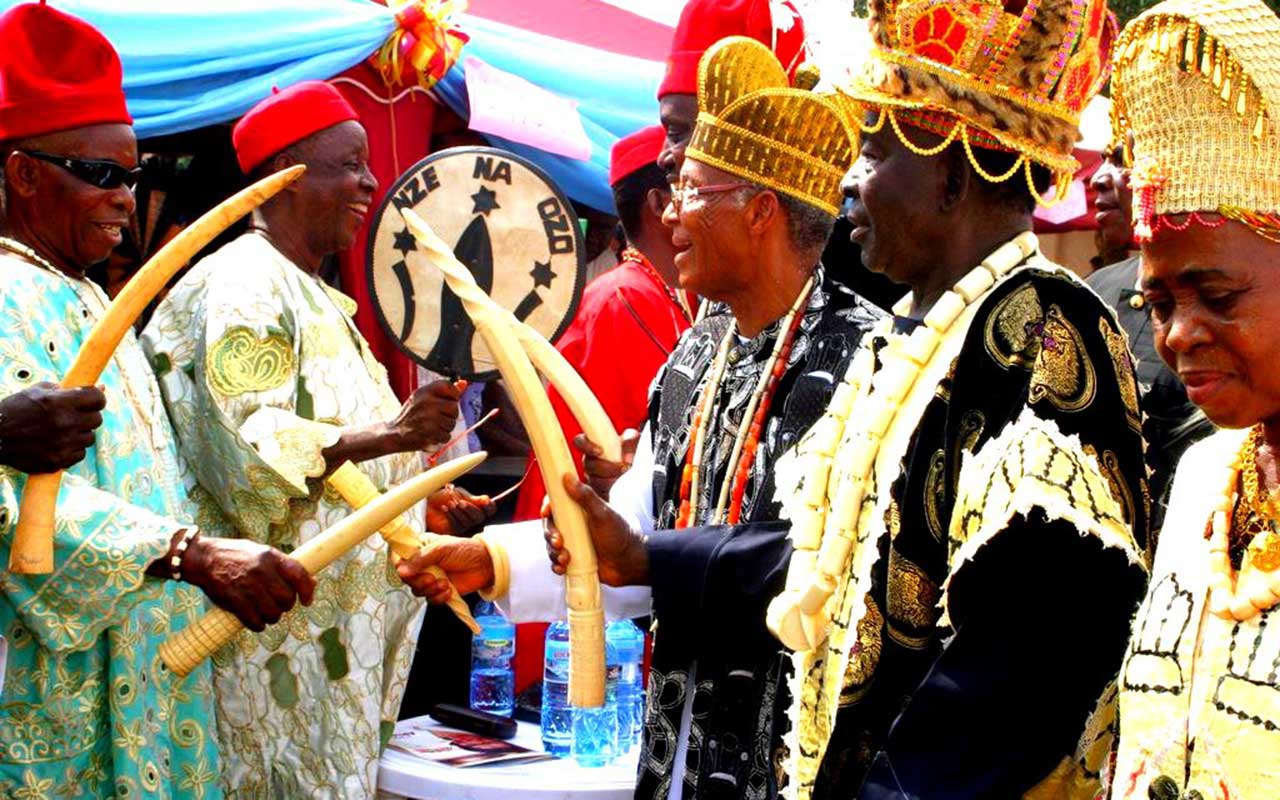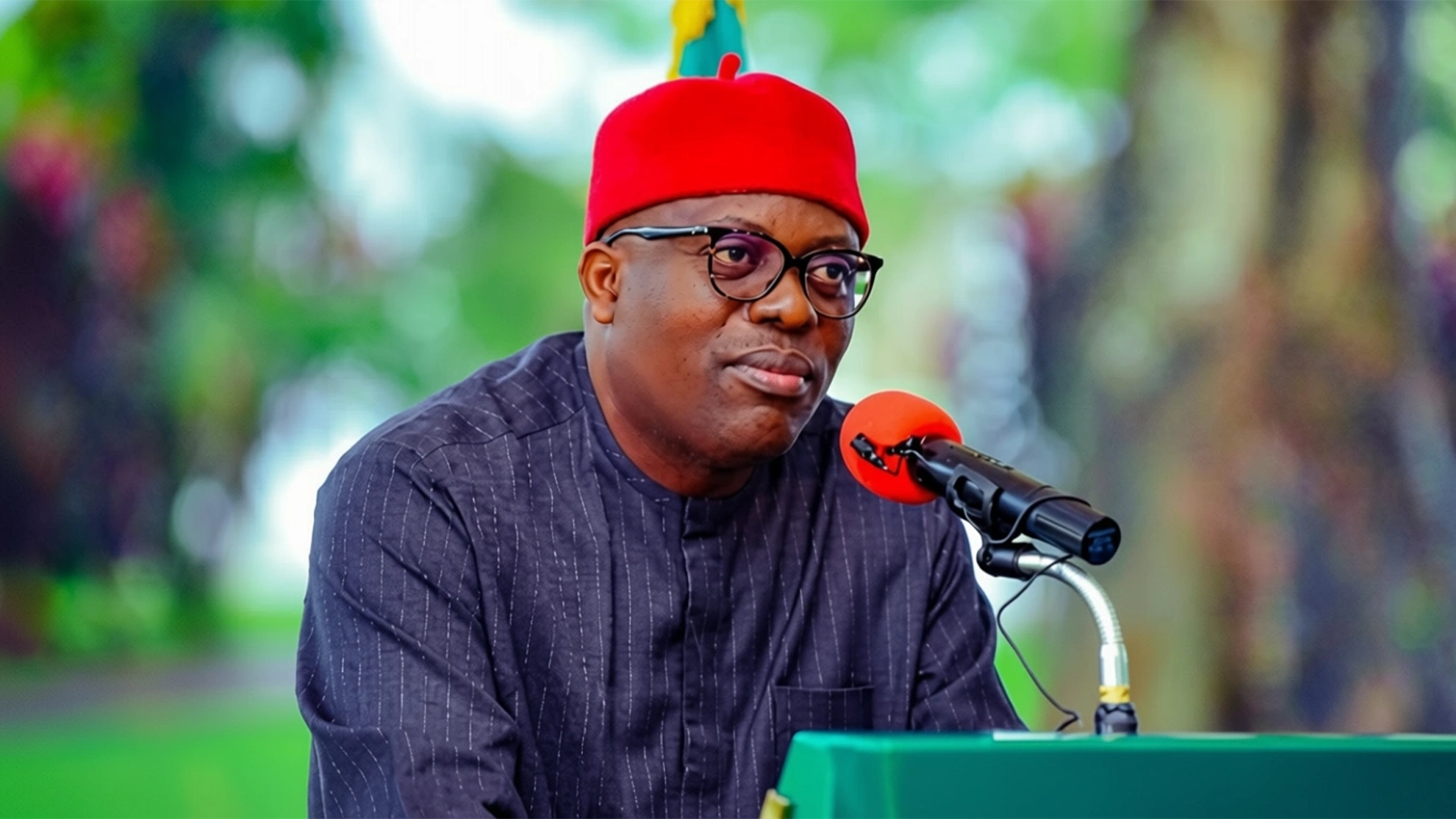 The relevance of autonomous communities as the first level administrative divisions, where traditional rulers superintend over activities in the South-East, is being called to question with rising conflicts, killings, and abductions in these communities, LAWRENCE NJOKU reports.
The relevance of autonomous communities as the first level administrative divisions, where traditional rulers superintend over activities in the South-East, is being called to question with rising conflicts, killings, and abductions in these communities, LAWRENCE NJOKU reports.
A few months ago, Mburumbu Community, Nkanu East Local Council of Enugu State was a “theatre of confusion” following a clash between supporters of two candidates laying claims to the community’s royal stool. The clash, on a Sunday morning, left many villagers injured.
Trouble reportedly started after supporters of one of the claimants to the Igwe stool, Chief Jerry Onukaibe, organised a reception for him at a primary school, in defiance of a “directive” from the camp of the other claimant to the throne, High Chief Linus Igbudu, which restricted members of the community from such gathering. The directive was conveyed to the community as a whole through a town crier.
The directive notwithstanding, Onukaibe’s supporters trooped out to the venue and made merry. Later the same day, supporters of Igbudu moved to the houses of Onukaibe’s supporters, seizing their property and demanding payment of fines before such property are released. The development led to a free-for-all that resulted in several injuries as tension enveloped the entire community.
The intervention of security forces helped quell the situation even though none of the gladiators had been recognised by the state government.
In Anambra State, members of some communities are sleeping with an eye open following contentions for Igweship.
In fact, Alor, Nkwelle-Ezunaka, Umuona, Umuoji, Ideani/Abatete, Ajali, Ojoto, Azia, and Oba communities are replete with crises over who occupies the traditional throne with some of the cases at various stages of litigation. Some of these cases have been in court for over 10 years.
The case of Azia Community in Ihiala Local Council has remained unresolved for more than nine years after two people emerged from an election conducted by the community for the office of the Igwe.
Of the two names that were submitted to the state government, one died while waiting to be recognised by the governor. The surviving contender who demanded to be crowned upon his contender’s demise attracted serious opposition from some segments of the community, especially those who were apparently in love with the late contestant to the throne.
In Abia, one of the longest-running Igweship tussles is that of the King of Arochukwu Ancient Kingdom which has been going on in the last 20 years.
But earlier this year, the state government decided to recognise and hand the staff of office to Dr Eberechukwu Oji, who was eventually coronated. However, a high court in the state on July 31, barely one week after the glamorous coronation, restrained him from parading himself as the Eze Aro and urged the state government to withdraw his staff of office.
The order of the court followed a suit from some segments of the 19 villages that make up Arochukwu Kingdom, who faulted his recognition on the ground that His Royal Majesty, Eze Godwin Kanu Idei, was already crowned on October 20, 2023.
In Umuako Nsirimo in Abia South Local Council, the community has not been able to produce a replacement for the late Eze Micheal Akpaka, who died and was buried over six years ago.
The Ezeship of Lodu Umuimenyi in Bende Local Council has been under serious contention for several years.
In Imo State, some communities that had their traditional rulers killed in the wake of worsening insecurity ravaging the state have not been able to replace them, even as members of the affected communities are not showing interest in occupying the vacant thrones.
Investigations by The Guardian show that except the monarch of Ohoba Community in Ohaji/Egbema Local Council, who died peacefully in March this year (after over 45 years on the throne), several other traditional rulers in the state were kidnapped and killed.
A catalogue of deaths involving monarchs in the state indicate that the traditional ruler of Otulu Community in Ezinihite Mbaise, Eze Joe Ochuloe, who was kidnapped and killed last year; that of Amanze Obowo Community, Eze Basil Njoku, was killed in 2022; the traditional ruler of Nguru Nweke Community in Aboh Mbaise Local Council, Eze J.N Nnamdi was kidnapped and killed; and Eze Philip O. Anyanwu; the Monarch of Orsu Obodo Community, in Oguta Local Council, Eze Victor Ijioma, was murdered in his car last year.
Ex-Chairman of the Imo State Traditional Rulers Council, Eze Samuel Ohiri was lucky. The gunmen who kidnapped him from his palace in Orodo Community, Mbaitolu Local Council on January 6, this year, took ransom and released him after 13 days in captivity.
It is against the background of the festering crises over kingship in communities; rising demands for the creation of autonomous communities, and the tensions being thrown up intermittently resulting in the killing of key dramatis personae (monarchs) among others that raise concerns over the relevance of autonomous communities to effective governance and security in the region.
An argument that hitherto supported the creation of autonomous communities and the installation of traditional rulers in the region is that doing so engenders peace, unity, peace, and development in the communities.
Presently, there are over 2,000 autonomous communities in the South-East region. Official figures obtained show that Abia State has 771; Imo 647; Enugu 450; Anambra 117, and Ebonyi 96. Each of these autonomous communities is expected to have a traditional ruler, but at the moment, a good number of them do not have a monarch.
In October last year, the Abia State Commissioner for Local Government and Chieftaincy Affairs, Uzor Nwachukwu, confirmed that of the existing 771 autonomous communities in the state, only 539 have recognised traditional rulers, stressing that 232 were without traditional rulers.
He had assured that efforts would be made to fill the vacancies by the law, taking into cognisance the traditions and customs of the affected communities.
The immediate past administration of Ifeanyi Ugwuanyi in Enugu State attempted to increase the number of autonomous communities in the state, following mounting requests from communities. Ugwuanyi had in 2022 set up a seven-man committee to consider what he called “various requests from communities for autonomy.”
By April 2023, when the committee submitted its report, no fewer than 716 applications were received from different communities, out of which it recommended the creation of 353 autonomous communities.
Time, unfortunately, did not allow Ugwuanyi to implement the proposal, which could have increased the number of autonomous communities in the state to 803 in the 17 local councils of the state.
Anambra State attempted to increase the number of autonomous communities in the 21 local councils in 2003, during the era of the late Chinweoke Mbadinuju. Sixty-eight additional autonomous communities were created then, but a court quashed their existence saying that appropriate procedures were not followed in their creation.
In Ebonyi State, there are 41 urban autonomous communities and 55 rural autonomous communities from its 13 local councils.
The 1999 Constitution, as amended, assigned traditional rulers advisory roles to the state and local councils on matters of customary laws, internal communal relations, chieftaincy, peace, and tranquility within the communities.
It, however, did not make any further provision for them. It is apparently to make the traditional institutions function effectively that state governments in the region insisted on issuing and renewing their certificates of recognition.
Anambra State, however, went further to design a modus operandi for monarchs, which it said was aimed at preventing abuses and trading of chieftaincy titles for money thereby bringing the institution to disrepute.
Part of the modus operandi provides that no traditional ruler can confer chieftaincy title on anyone outside his community without obtaining the permission of the traditional ruler of the recipient’s community, as well as, clearance from the Ministry of Chieftaincy Matters.
But despite the crises that have continued to engulf autonomous communities, a lecturer at the Nnamdi Azikiwe University, Awka, Dr Chike Udeh, stated that they remain relevant to effective governance and security in communities, even as he blamed some state governors for the problems besetting these communities.
“Some of the governors have balkanised their states with the creation of many autonomous communities, which serve no developmental purposes, but to satisfy political reasons. I say this because there are customs, traditions, rules, and regulations guiding the activities of communities. But we have situations where governors carve out autonomous communities because they want to satisfy their friends. There are ones that will remove traditional rulers to plant their stooges, or because the traditional rulers refused to support them. That is where the abuse starts. When a chief executive makes a ruler irrelevant before his subjects, he becomes a caricature.
“The next thing is how many governors or local council chairmen take the advice of traditional rulers that they did not enthrone? All they need to do well is the support of those in power, and nothing more,” he stated.
A Professor of International Law and Global Politics at the University of Kansas School, Jehu Nnaji, who agreed that a lot has happened to question the relevance of autonomous communities and their rulers in the governance system, stated that the rush by young men to monarchs has not helped the sector.
“They now use their money to buy the people to support them to occupy the Office of Igwe, whether they are qualified or not. That is part of the problem. Some communities see Igweship from a hereditary point of view; others say it is rotational, or from the eldest of the villages; but this is not the case these days.
That is why there are so many crises about Igweship in the region. If we stick to the customs and not look at it as part of politics we should play, then, the institution will continue to serve their purposes,” he stated.
For the Public Relations Officer, in the Enugu State Ministry of Chieftaincy and Local Government Matters, Mrs Ifeoma Ogbu, despite the tussle associated with Igweship in autonomous communities in Igboland, the issue should not be downplayed because of the needs and benefits inherent in them.
Ogbu blamed the tussle on the selfish desires of certain individuals who pride themselves in circumventing stipulated rules and regulations guiding the operations of communities and the Igweship election.
She stated that before any community is granted autonomy, there are certain rules and regulations, which they must present to the government, adding that: “These are what we look upon to approve or disapprove such requests.”
“However, what we see is that when autonomy is granted, people end up setting camps and throwing up contests even when they are not conversant with the demands of such offices. That is the problem.
“But our communities are too large and cannot be left in the hands of a few Igwes. We need more communities despite the tussles for Igweship here and there. This is because they are the custodians of peace and security. Having more communities will engender development and help in smooth governance,” she stated
A public affairs analyst, Jude Uwandu, said that the proliferation of Igweship titles is responsible for the unending menace. He wondered how the institution can perform when they are no longer seen as giving service to the communities, explaining that in the individuals’ attempt to occupy the throne, “some of them have created divisions and chastised their people”
To get it right, however, he advised the government to reduce its influence on the institutions, and support their activities, while urging communities to stick to customs and conventions guiding the Igweship election.

![Igwess[1]](https://guardian.ng/cdn-cgi/image/format=auto,width=600,fit=contain,q=70/https://cdn.guardian.ng/wp-content/uploads/2024/09/Igwess1.jpg)



